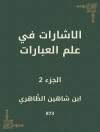This text provides comprehensive coverage of the key methods for analyzing, interpreting, and writing up qualitative research in a single volume, and drawing on the expertise of major names in the field. Covering all the steps in the process of analyzing, interpreting, and presenting findings in qualitative research, the authors utilize a consistent chapter structure that provides novice and seasoned researchers with pragmatic, ‘how-to’ strategies. Each chapter introduces the method; uses one of the authors′ own research projects as a case study of the method described; shows how the specific analytic method can be used in other types of studies; and concludes with questions and activities to prompt class discussion or personal study.
Table of Content
Introduction – Charles Vanover, Paul Mihas, and Johnny Saldaña
SECTION 1: DATA AND CONCEPTUAL OPTIONS – Charles Vanover and Paul Mihas
Chapter 1: As A Qualitative Study Unfolds: Shifts in Design and Analysis – Gerardo L. Blanco & Gretchen B. Rossman
Chapter 2: Using Qualitative Data Analysis Software to Manage the Research Process – Jessica N. Lester & Trena M. Paulus
Chapter 3: After Someone Else’s Interview – Sheryl L. Chatfield
SECTION 2: INTERVIEW TRANSCRIPTION STRATEGIES – Charles Vanover
Chapter 4: Transcription as a Form of Qualitative Inquiry – Charles Vanover
Chapter 5: Theories and Practices of Transcription from Discourse Analysis – Mariaelena Bartesaghi
Chapter 6: Voice to Text: Automating Transcription – Silvana di Gregorio
SECTION 3: STRATEGIES FOR CODING AND CATEGORIZING DATA – Paul Mihas
Chapter 7: Coding System Design and Management – Daniel Turner
Chapter 8: Deductive and Inductive Approaches to Qualitative Data Analysis – Andrea J. Bingham & Patricia Witkowsky
Chapter 9: Coding, Categorizing, and Theming the Data: A Reflexive Search for Meaning – Janet C. Richards
Chapter 10: Oral Coding: An Alternative Way to Make Sense of Interview Data – James A. Bernauer
Chapter 11: Mapping Trajectories: Analyzing and Interpreting Focus Group Data Rhizomatically – Alyson Welker & George Kamberelis
Chapter 12: Analyzing and Coding Interviews and Focus Groups Considering Cross-Cultural and Cross-Language Data – Elsa M. Gonzalez and Yvonna S. Lincoln
SECTION 4: REFLECTION AND ANALYTIC MEMOING STRATEGIES – Paul Mihas
Chapter 13: On Being a Researcher-Participant: Challenges With the Iterative Process of Data Production, Analysis and (Re)Production – Craig M. Mc Gill, Drew Puroway, and Mark Duslak
Chapter 14: Memo Writing Strategies: Analyzing the Parts and the Whole – Paul Mihas
Chapter 15: Critical Analytic Memoing – Elaine Keane
SECTION 5: INTERPRETIVE STRATEGIES – Paul Mihas
Chapter 16: Listening Deeply: Indexing Research Conversations – Jaime L. Fiddler
Chapter 17: Emergent Analysis: Strategies for Making Sense of an Evolving Longitudinal Study – Adrian Larbi-Cherif, Cori Egan, Joshua L. Glazer
Chapter 18: Making Claims Using Qualitative Data – Tim Huffman
SECTION 6: ARTS-BASED PRACTICES – Johnny Saldaña
Chapter 19: Dramatizing Interviews – Johnny Saldaña
Chapter 20: What Makes an Effective Teacher? Revealing Good Teaching Practice Through Poetic Transcription – Robyn Shenfield & Monica Prendergast
Chapter 21: Embedding Critical, Creative, and Contemplative Data Analysis in Interview Studies – Kakali Bhattacharya
Chapter 22: Follow the Headlights: On Comics-Based Data Analysis – Sally Campbell Galman
SECTION 7: WRITING-UP PRACTICES – Paul Mihas
Chapter 23: Turning Transcripts into Stories – Aishath Nasheeda, Haslinda Binti Abdullah, Steven Eric Krauss, Nobaya Binti Ahmed
Chapter 24: Writing for a Broad Audience: White Papers, Blogs, and Op Eds – Jessica Smartt Gullion
Chapter 25: Sophie’s Choices: The Social Act of Publishing a Qualitative Study – Mitchell Allen
Conclusion – Paul Mihas, Johnny Saldaña, and Charles Vanover
About the author
Johnny Saldaña is Professor Emeritus from Arizona State University’s (ASU) School of Film, Dance, and Theatre in the Herberger Institute for Design and the Arts, where he taught from 1981 to 2014. He received his BFA in Drama and English Education in 1976, and MFA in Drama Education in 1979 from the University of Texas at Austin.Saldaña is the author of Longitudinal Qualitative Research: Analyzing Change through Time (Alta Mira Press, 2003); Fundamentals of Qualitative Research (Oxford University Press, 2011); Ethnotheatre: Research from Page to Stage (Left Coast Press, 2011); Thinking Qualitatively: Methods of Mind (Sage Publications, 2015); a commissioned title for Routledge’s World Library of Educationalists Series, Writing Qualitatively: The Selected Works of Johnny Saldaña (Routledge, 2018); co-author with the late Matthew B. Miles and A. Michael Huberman for Qualitative Data Analysis: A Methods Sourcebook (4th ed., Sage Publications, 2020); co-author with Matt Omasta for Qualitative Research: Analyzing Life (Sage Publications, 2018); and the editor of Ethnodrama: An Anthology of Reality Theatre (Alta Mira Press, 2005). Previous editions of The Coding Manual for Qualitative Researchers have been translated into Korean, Turkish, and Chinese-Simplified.Saldaña’s methods works have been cited and referenced in more than 16, 000 research studies conducted in over 130 countries in disciplines such as K-12 and higher education, medicine and health care, technology and social media, business and economics, government and social services, the fine arts, the social sciences, human development, and communication. He has published a wide range of research articles in journals such as Research in Drama Education, The Qualitative Report, Multicultural Perspectives, Youth Theatre Journal, Journal of Curriculum and Pedagogy, Teaching Theatre, Research Studies in Music Education, Cultural Studies ? Critical Methodologies, the International Journal of Qualitative Methods, the International Review of Qualitative Research, and Qualitative Inquiry, and has contributed several chapters to research methods handbooks. His most popular journal article, “Blue-Collar Qualitative Research: A Rant” (Qualitative Inquiry, 2014), has been downloaded by over 3, 000 readers, according to Research Gate.Saldaña’s research in qualitative inquiry, data analysis, and performance ethnography has received awards from the American Alliance for Theatre & Education, the National Communication Association-Ethnography Division, the American Educational Research Association’s Qualitative Research Special Interest Group, New York University’s Program in Educational Theatre, the Children’s Theatre Foundation of America, and the ASU Herberger Institute for Design and the Arts.












